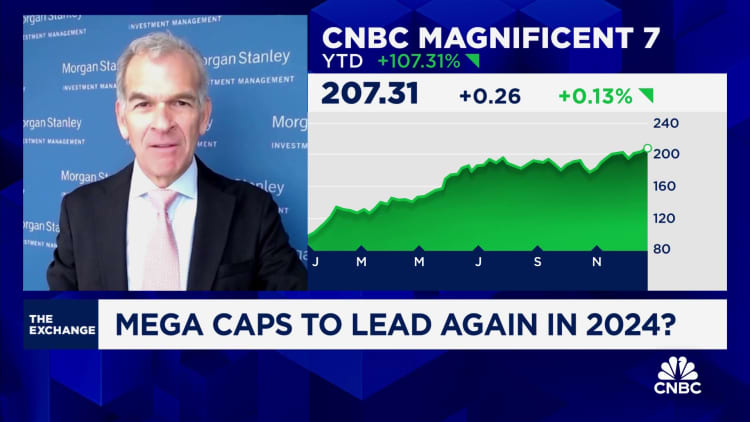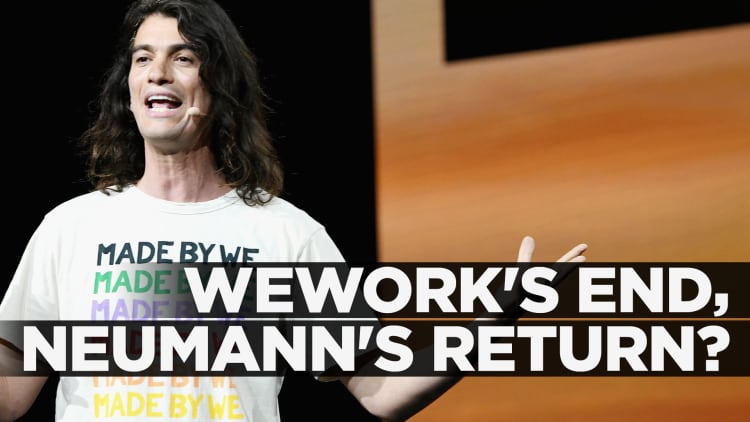Scooters take over SXSW in Austin, TX
As the last decade came to an end, it was easy for a young engineer to hop on a Bird scooter and ride it to a nearby WeWork office, home to the hottest new crypto startup.
Then came Covid. Electric scooters and coworking spaces were no longer important, but there was a sudden need for tools to enable remote collaboration. Money started flowing into entertainment and education apps that consumers could tap while in lockdown. And while trading crypto.
In both periods, money was cheap and plentiful. The Federal Reserve’s near-zero interest rate policy had been in effect since after the 2008 financial crisis, and Covid stimulus efforts added fuel to the fire, incentivizing investors to take risks, betting on the next big innovation. And crypto.
This year, it all unwound. With the Fed lifting its benchmark rate to the highest in 22 years and persistent inflation leading consumers to pull back and businesses to focus on efficiency, the cheap money bubble burst. Venture investors continued retreating from record levels of financing reached in 2021, forcing cash-burning startups to straighten out or go bust. For many companies, there was no workable solution.
WeWork and Bird filed for bankruptcy. High-valued Covid plays like videoconferencing startup Hopin and social audio company Clubhouse faded into oblivion. And crypto entrepreneur Sam Bankman-Fried, founder of failed crypto exchange FTX, was convicted of fraud charges that could put him behind bars for life.
Last week, Trevor Milton, founder of automaker Nikola, was sentenced to four years in prison for fraud. His company had raised bundles of cash and rocketed past a $30 billion valuation on the promise of bringing hydrogen-powered vehicles to the mass market. December also saw the demise of Hyperloop One, which reeled in hundreds of millions of dollars to build tubular transportation that would shoot passengers and cargo at airline speeds in low-pressure environments.
There is surely more pain to come in 2024, as cash continues to dry up for unsustainable businesses. But venture capitalists like Jeff Richards of GGV Capital see an end in sight, recognizing that the zero interest rate policy (ZIRP) days are squarely in the past and good companies are performing.
“Prediction: 2024 is the year we finally bury the class of ’21 ZIRP ‘unicorns’ and start talking about a new crop of great companies,” Richards wrote in a post on X, formerly Twitter, on Dec. 25. “Never overvalued, well run, consistently strong growth and great cultures. IPO class of ’25 coming your way.” He concluded with two emojis — one of a smiling face and the other of crossed fingers.

Investors are clearly excited about tech. Following a 33% plunge in 2022, the Nasdaq Composite has jumped 44% this year as of Wednesday’s close, putting the tech-heavy index on pace to close out its strongest year since 2003, which marked the rebound from the dot-com bust.
Chipmaker Nvidia more than tripled in value this year as cloud companies and artificial intelligence startups snapped up the company’s processors needed to train and run advanced AI models. Facebook parent Meta jumped almost 200%, bouncing back from a brutal 2022, thanks to hefty cost cuts and its own investments in AI.
The 2023 washout occurred in parts of the tech economy where profits were never part of the equation. In hindsight, the reckoning was predictable.
Between 2004 and 2008, venture investments in the U.S. averaged around $30 billion annually, according to data from the National Venture Capital Association. When the Fed pulled rates close to zero, big money managers lost the opportunity to get returns in fixed income, and technology drove massive growth in the global economy and a sustained bull market in equities.
Investors, hungry for yield, poured into the riskiest areas of tech. From 2015 to 2019, VCs invested an average of $111.2 billion annually in the U.S., setting records almost every year. The mania reached a zenith in 2021, when VCs plunged more than $345 billion into tech startups — more than the total amount they invested between 2004 and 2011.
Too much money, not enough profit
WeWork’s spiral into bankruptcy was a long time in the making. The provider of coworking space raised billions from SoftBank at a peak valuation of $47 billion but was blasted when it first tried to go public in 2019. Investors balked at the more than $900 million in losses the company had racked up in the first half of the year and were skeptical of related-party transactions involving CEO Adam Neumann.
WeWork ultimately debuted — without Neumann, who stepped down in September 2019 — via a special purpose acquisition company in 2021. Yet a combination of rising interest rates and sluggish return-to-office trends depressed WeWork’s financials and stock price.
Adam Neumann of WeWork and Victor Fung Kwok-king, right, chairman of Fung Group, attend a signing ceremony at WeWork’s Weihai Road location on April 12, 2018 in Shanghai, China.
Jackal Pan | Visual China Group | Getty Images
In August, WeWork said in a securities filing that there was a “going concern” about its ability to remain viable, and in November the company filed for bankruptcy. CEO David Tolley has laid out a plan to exit many of the expensive leases signed in WeWork’s heyday.
Bird’s path to bankruptcy followed a similar trajectory, though the scooter company maxed out at a much lower private market valuation of $2.5 billion. Founded by former Uber exec Travis VanderZanden, Bird went public through a SPAC in November 2021, and quickly fell below its initial price.
Far from its meteoric growth days of 2018, when it announced it had reached 10 million rides in a year, Bird’s model fell apart when investors stopped pumping in cash to subsidize cheap trips for consumers.
In September, the company was delisted from the New York Stock Exchange and began to trade over the counter. Bird filed for Chapter 11 bankruptcy protection earlier this month and said it will use the bankruptcy proceeding to facilitate a sale of its assets, which it expects to complete within the next 90 to 120 days.
While the onset of the Covid pandemic in 2020 was a shock to businesses like WeWork and Bird, a whole new class of companies flourished — for a short time at least. Alongside the booming stock prices for Zoom, Netflix and Peloton, startup investors wanted in on the action.
Virtual event planning platform Hopin, founded in 2019, saw its valuation increase from $1.5 billion in December 2020 to $7.75 billion by August 2021. Meanwhile, Andreessen Horowitz touted Clubhouse as the go-to app for hosting virtual sessions featuring celebrities and influencers, a novel idea when nobody was getting together in person. The firm led an investment in Clubhouse at a $4 billion valuation in the early part of 2021.
But Clubhouse never turned into a business. User growth plateaued quickly. In April 2023, Clubhouse said it was laying off half its staff in order to “reset” the company.
“As the world has opened up post-Covid, it’s become harder for many people to find their friends on Clubhouse and to fit long conversations into their daily lives,” co-founders Paul Davison and Rohan Seth wrote in a blog post.
Hopin was equally dependent on people remaining at home attached to their devices. Hopin founder Johnny Boufarhat told CNBC in mid-2021 that the company would go public in two to four years. Instead, its events and engagement businesses were swallowed up by RingCentral in August for up to $50 million.
For some of the latest high-profile failures, the problems stemmed from the tech industry’s blind faith in the innovative founder.
FTX collapsed almost overnight in late 2022 as customers of the crypto exchange demanded withdrawals, which were unavailable because of how Bankman-Fried was using their money. Bankman-Fried’s white knight veneer had gone largely unscrutinized, because big-name investors like Sequoia Capital, Insight Partners and Tiger Global pumped in money without getting any sort of board presence in return.
Nikola’s Milton had dazzled investors and the press, taking on an ambitious effort to transform how cars run in a way that other automakers had tried and failed to do in the past. In June 2020, three years after its founding, the company went public via a SPAC.
Three months after its public market debut, Nikola announced a strategic partnership with General Motors that valued the company at more than $18 billion, which was well below its peak in June.
Within days of the GM deal, short seller firm Hindenburg Research released a scathing report, declaring that Milton was spouting an “ocean of lies.”
“We have never seen this level of deception at a public company, especially of this size,” Hindenburg wrote.
Milton resigned 10 days after the report, by which time concurrent Justice Department and Securities and Exchange Commission probes were underway. Nikola settled with the SEC in December 2021. A week before Christmas of this year, Milton was sentenced to prison for fraud.
Virgin Hyperloop One built the world’s first working, full-sized hyperloop test in Nevada. It ran last year for a little less than a third of a mile, and accelerated a 28-foot pod to 192 miles per hour in a few seconds.
Source: Virgin Hyperloop
‘Growing from lessons learned’
Hyperloop One is another far-out idea that never made it to fruition.
The company, originally called Virgin Hyperloop, raised more than $450 million from its inception in 2014 until its closure this month. Investors included Sir Richard Branson’s Virgin Group, Russia’s sovereign wealth fund and Khosla Ventures.
But Hyperloop One was unable to secure contracts that could take it beyond a test site in Las Vegas, adding to years of struggles that involved allegations of executive misconduct. Bloomberg reported the company is selling off assets and laying off the remaining staff members.
Even for the segments of emerging technology that are still flourishing, the capital markets are challenging outside of AI. Hardly any tech companies have gone public in the past two years following record years in 2020 and 2021.
The few tech IPOs that took place this year stirred up little enthusiasm. Grocery delivery company Instacart went public in September at $42 a share after dramatically slashing its valuation. The stock has since lost more than 40% of its value, closing Wednesday at $23.93.
Masayoshi Son’s SoftBank, which was the principal investor in WeWork and a number of other companies that failed in the past couple years, took chip designer Arm Holdings public in September at a $60 billion valuation. The offering provided some much-needed liquidity for SoftBank, which had acquired Arm for $32 billion in 2016.
Arm has done better than Instacart, with its stock climbing 46% since the initial public offering to close at $74.25 on Wednesday.
Many bankers and tech investors are pointing to the second half of 2024 as the earliest opportunity for the IPO window to reopen in a significant way. By that point, companies will have had more than two years to adapt to a changed environment for tech businesses, with a focus on profit above growth, and may also get a boost from expected Fed rate cuts in the new year.
For some founders, the market never closed. After exiting WeWork, where he’d been propped up by billions of dollars in SoftBank cash in a decision that Son later called “foolish,” Adam Neumann is back at it. He raised $350 million last year from Andreesen Horowitz to launch a company called Flow, which says it wants to create a “superior living environment” by acquiring multifamily properties across the U.S.
Neumann’s WeWork experience isn’t proving to be a liability. Rather, it drove Andreessen’s investment.
“We understand how difficult it is to build something like this,” Andreessen wrote in a blog post about the deal. “And we love seeing repeat-founders build on past successes by growing from lessons learned.”
WATCH: WeWork’s end, Neumann’s return?


